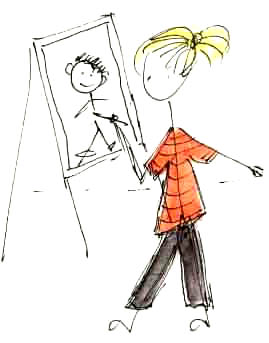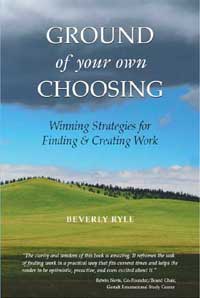Month
More Often Than Not
 I regularly work with clients who have creative goals—making pottery, writing poetry, actually using the sketch pad they've purchased or been given as a gift. Sometimes these aspirations come up almost apologetically: "Of course, it's not practical and I have so little time, but what I'd really like to be doing is—"
I regularly work with clients who have creative goals—making pottery, writing poetry, actually using the sketch pad they've purchased or been given as a gift. Sometimes these aspirations come up almost apologetically: "Of course, it's not practical and I have so little time, but what I'd really like to be doing is—"
Frequently they come to light in an exercise where clients write stories about experiences in their lives which gave them a deep sense of personal satisfaction, e.g., this description of a drawing class written by a woman who manages construction projects: “I loved how I felt when I was doing these drawings. There was a connection between my soul and the paper.”
Occasionally, the need to put hands to clay or pen to paper has become so important to a client that the failure to be able to do it become the focal point of our discussion. This is always exciting to me because it is an unconscious recognition of the link between the artistic urge and transforming a work life.
In my clients' frustration I hear the struggle to claim the creative space which is essential to a genuine transition. The challenge for them (and for me) is to actuate these seemingly non-productive, impractical pursuits to serve the longer term goal of professional fulfillment.






